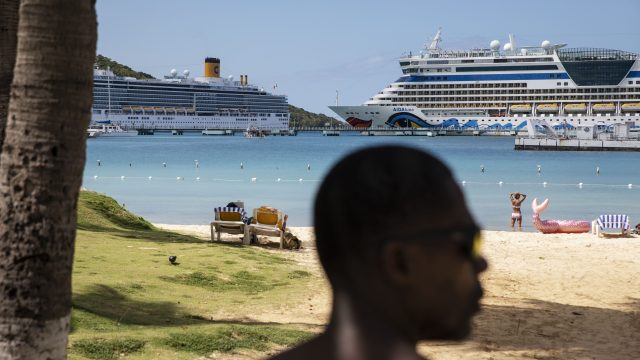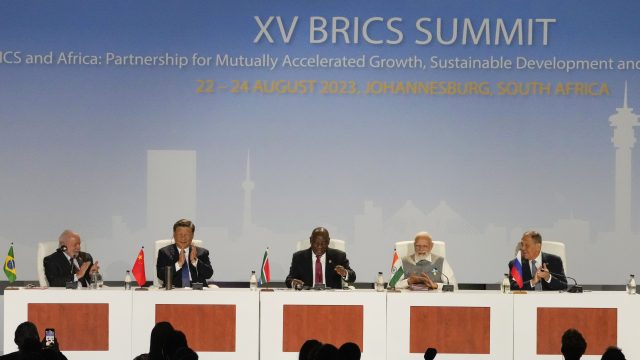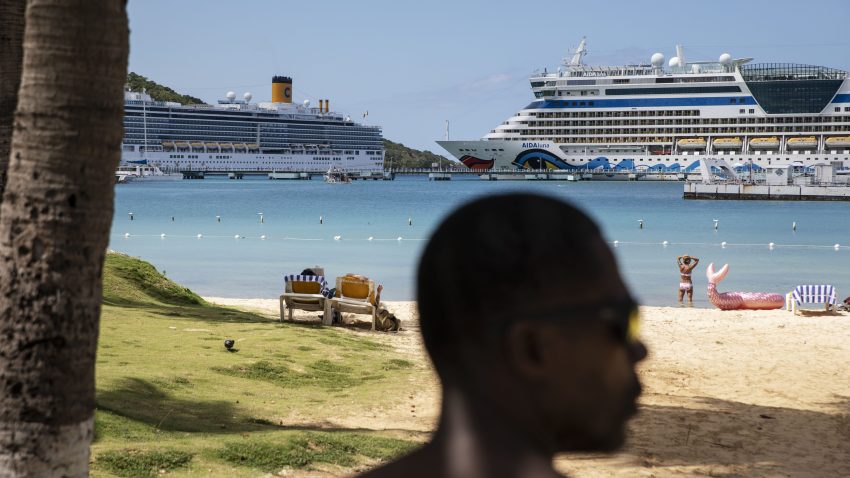Hello, everyone. This is an abridged version of the Daily Review, as our editorial staff is taking a well-deserved vacation. This newsletter will be off on Monday for the Labor Day holiday in the United States. The full-length Daily Review will return Tuesday.
Today at WPR, we’re covering the expansion of BRICS and the need for Caribbean nations to evolve their economies so that they are less dependent on tourism.
But first, here’s our take on today’s top stories:
Xi to skip G20 summit: Chinese President Xi Jinping has decided to skip next week’s Group of 20 summit, which will be hosted by India in New Delhi. (Bloomberg)
Our Take: The move comes amid tensions between India and China on a number of fronts. Despite their mutual participation in the BRICS meeting last week in South Africa, and in that group’s decision to expand to 11 countries, the two would-be leaders of the Global South don’t share a vision of world order, and face very different challenges at the moment.
India’s population, set to overtake China’s this year as the world’s largest, is young and still growing, while China’s is rapidly aging. China faces an escalating economic crisis, while India’s economy is one of the fastest growing in the world. India’s relations with the United States are improving, while U.S.-China relations are headed in the opposite direction. The two differ over the war in Ukraine, have been unable to resolve a years-long border dispute in the Himalayas, and, oh yes, have very different political systems.
More context from WPR:
- Jack A. Goldstone on India’s prospects for surpassing China economically.
- Rajeswari Pillai Rajagopalan on the U.S.-India partnership.
- Jabin T. Jacob on India’s lack of a coherent China policy.
Putin moves to seize control of Wagner: Bloomberg quotes sources close to the Kremlin and Russia’s defense ministry in reporting that “all of Wagner’s covert overseas network is due to fall under effective Russian military command.”
More context from WPR:
- Christopher Faulkner, Raphael Parens and Marcel Plichta on how the West should prepare for Wagner’s successor in Africa.
- Alexander Clarkson explains why Wagner’s aborted coup, and the apparent assassination of Yevgeny Prigozhin that followed, is an indicator of the potentially irreversible fracturing of Russia’s state and society.
- Vianney Ingasso, John Lechner and Marcel Plichta on Wagner’s role in the messy situation in the Central African Republic.


Facing Environmental Crisis, Caribbean Island Economies Must Evolve
In our latest in-depth piece, economist Scott B. MacDonald examines the challenges facing the economies of Caribbean island nations from climate change and environmentally unsustainable tourism.
Tourism is absolutely central to the economies of most island states, but it is also a source of environmental problems, especially because Caribbean tourism tends to rely on high volumes of visitors. The COVID-19 pandemic exposed the degree to which over-reliance on tourism is a risk for Caribbean countries. Now that tourism has recovered, Caribbean nations should avoid going back to business as usual, MacDonald writes. To both keep tourism alive and successfully manage climate change, changes are necessary.
BRICS’ Expansion Is Aimed at Upending the Western-Led Order
Also today, columnist Paul Poast looks at last week’s decision by the BRICS group to expand from five to 11 members, inviting Ethiopia, Argentina, Iran, Egypt, Saudi Arabia, and the United Arab Emirates to officially join the group on Jan. 1, 2024.

It’s important not to overhype the BRICS expansion decision, Poast writes. But the expansion to BRICS+ is still notable because it’s a clear indicator of the Global South’s dissatisfaction with the Western-led economic order.
That’s all for today’s newsletter. We’ll be back Tuesday with a full version of the Daily Review.
—Hampton Stephens
More From WPR
- Frida Ghitis on voters in Ecuador and Guatemala wanting more than just tough talk about iron-fisted approaches to fighting crime.
- Alexander Clarkson on Russia reaching a point of no return.
- Kelly Petillo on the uncertainty facing Syrian refugees in Jordan.

